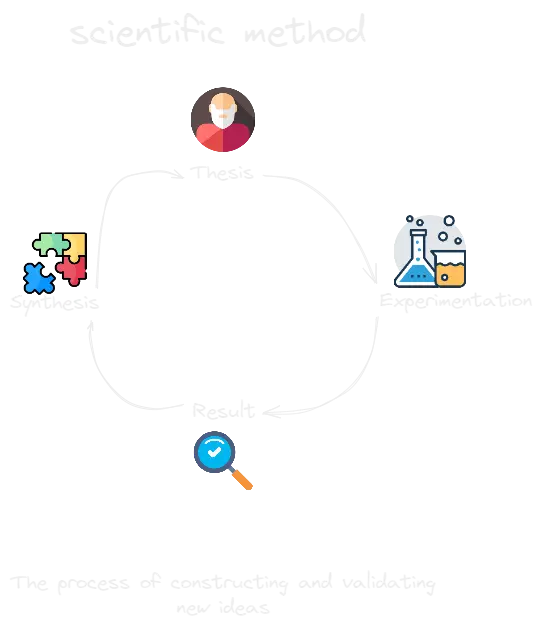Scientific Method
Notes
The scientific method is a way of thinking about the world and what we know about it. The core idea is that in order to increase our knowledge and our confidence in it, the only viable method is by Experimentation, Instead of relying solely on our prior knowledge, reasoning Rationalism, and Gut Feeling.
We gain knowledge by Hypothesis Testing. An hypothesis is an idea that can be rejected under verifiable conditions. For example, an hypothesis can be "all swans are black". By finding a white swan, our hypothesis will be rejected and we will update our knowledge accordingly.
This method on the one hand is much more humble and rigorous in terms of what we know (or assume to know). A scientist is much more open to Rethinking, to accept facts that contradict their beliefs and change accordingly Conformation Bias. At some level, to think like a scientist requires Skepticism, that we don't accept any claim at face value, we first examine the claim and only believe it if it is true.
However, we can't rely on the scientific method alone. Even scientists can fall into biases that are typical to the scientific method, such as streetlight effect, which means that we focus on what is easy to measure, quantify or to test, or that we fall to McNamara Fallacy, when we claim that only what's measurable is important. Also, we might confuse Is vs Ought, since causality is hard to measure, we might use what we see as a justification to what should be, instead of searching for the reasons for it's existence.
The scientific method comes short when the truth we are trying to measure and gain is not objective, when there is no one true value, rather many options that are all true at the same time, or at least somewhat overlap. For example, human behavior is often such a case, when there is no clear answer for many of life's questions.
Visual

Overview
🔼Topic:: Empiricism 🔼Topic:: Mindset (Map) ◀Origin:: 🔗Link::